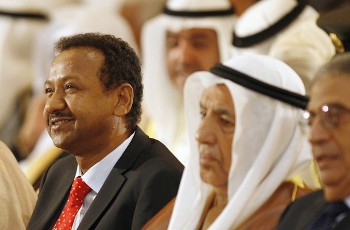Sudan’s Eastern Front warn government on implementation of peace deal
February 13, 2013 (KHARTOUM) – Members from the Eastern Front (EF), a former rebel group who are part of the East Reconstruction and Development Fund (ERDF), unleashed a barrage of criticism at Khartoum, claiming that the latter has breached obligations contained in the 2006 peace treaty signed in Eritrea.

Under the October 2006 peace agreement, the Eastern Front joined with the government and a $600 million ERDF was established to help the region recover from war.
A further $3.5 billion pledged at a donor conference that took place in Kuwait in December 2010 was also supposed to be added to the ERDF.
As stipulated in the peace deal, the ERDF was to be managed in a professional and transparent manner using sound accounting principles, with all projects under review to be approved on the basis of consensus between the two sides.
The disgruntled group accused the appointed managing director of carrying out the functions bestowed upon the board of directors and working exclusively with the federal finance minister in approving projects.
They also alleged that funds were misappropriated and vacancies were created outside the approved organisational structures and that the people of the East were excluded from the top posts or were given positions without a mandate.
Moreover an economic, social, administrative and technical assessment of the projects undertaken in the last five years as required by the peace agreement was not performed.
The group said that a presidential decree outlining the functions and powers of ERDF allowed the governor, ministries and other agencies to interfere in its work.
They noted that previous complaints to the president and other officials were ignored.
The three states of Red Sea, Kassala and Gedaref in the East have potential gold, oil and gas resources, but poverty remains endemic among the region’s five million inhabitants, whose livelihoods have been undermined by war, climate change and environmental degradation.
Eastern Sudan has the country’s highest poverty rate, the highest level of child deaths under five years old, and the most children between the ages of six and 13 out of school, says the United Nations Development Programme (UNDP).
(ST)
